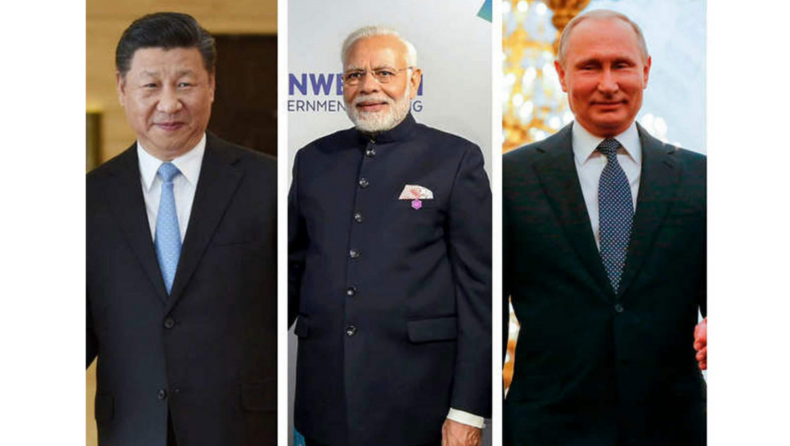While the United States is urging China not to assist Russia in the Ukraine crisis, Beijing and New Delhi are growing increasingly concerned that they will bail out Moscow from a debacle imposed by the West.
Following US officials’ assertions over the weekend that Moscow was seeking military supplies and economic assistance from China as a result of becoming embroiled in the Ukraine crisis, US National Security Advisor Jake Sullivan met with China’s top diplomat Yang Jiechi in Rome on Monday to express Washington’s concerns about possible military and financial assistance to Russia. China has categorically denied the reports as untrue. not to assist Russia.
India has not been mentioned publicly in the United States’ concerns about countries that are assisting Russia, but reports that New Delhi is considering purchasing Russian crude and other commodities at discounted prices in exchange for a rupee-rouble transaction have sparked debate in Washington, where some US partisans envision the emergence of a Moscow-Beijing-New Delhi partnership, despite tensions between China and India as well as positive relations between the United States and India.
In contrast to the United States, which is attempting to persuade China not to bail out Russia, Washington’s energy-dependent Nato allies are finding it easier, thanks to the United States’ “understanding.” However, despite their protests, they continue to purchase Russian gas and oil, thereby effectively financing Moscow’s invasion of Ukrainian territory.
In the face of Russia’s invasion of Ukraine, both China and India have refused to condemn it categorically. Their only point of agreement is that they are concerned about Nato’s overreach, which Moscow considers provocative. However, while China and Russia have developed close ties in recent years, India has sought to establish positive relations with both the United States and Russia, in part as a result of its tensions with Beijing.
While the United States makes strident and public demands of China, its pressure on India is more muted, with expressions of recognition of New Delhi’s long-standing reliance on Russia for its military supplies. Officials and analysts in the United States have warned that if China comes to Russia’s aid, it will be subjected to international isolation and economic sanctions.
Actually, the United States is attempting to drive a wedge between Moscow and Beijing to free China from Russian control by claiming that China may not have realised the full extent of Moscow’s plans (to invade Ukraine) because, in the words of NSA Jake Sullivan, “it’s very possible Putin lied to them the same way he lied to Europeans and others” (that he had no plans to invade Ukraine).
The US commentariat, on the other hand, is sceptical of this line of reasoning, with some analysts claiming that China authorized the Russian invasion in part to gauge public reaction to its own alleged attack on Taiwan.
In the role of supplicant, Putin went to Beijing and obtained China’s tacit support for his war, at the cost of mortgaging Russia’s future to the Chinese government. A co-conspirator, to put it another way. As CNN political analyst John Rogin asserted in arguments that gained widespread acceptance in the United States, “we must call him out for it, rather than pretend he is a neutral bystander. “
“While the Ukraine-Taiwan comparison is not without flaws, there is little doubt that Xi is keeping an eye on the outcome of the Ukraine conflict while also assessing the willingness of the West to defend Taiwan. And there is little doubt that if China launches an attack on the island democracy, Putin will reciprocate Xi’s current friendship with the Russian president “Rogin made the statement.
Published By : VATSAL KOTHA
Edited By : KRITIKA KASHYAP













